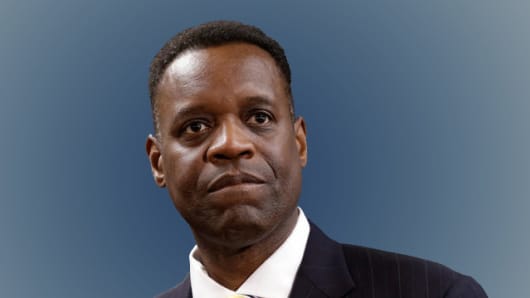In the biggest state takeover of a U.S. city in more than two decades, Michigan Gov. Rick Snyder on Thursday named a lawyer with deep expertise in corporate bankruptcy as Detroit's emergency financial manager.
Kevyn Orr, a partner in the Washington law firm Jones Day and best known for his work on the restructuring of Chrysler after it filed for bankruptcy protection in 2009, will assume financial control of Detroit, the nation's poorest major city.
In this capacity, Orr supplants the authority of Detroit's elected officials, both the mayor and the city council. His powers include renegotiating labor contracts, privatizing services and selling city assets.
The dramatic move marks a watershed in the long decline of a city that at one time was the center of the U.S. auto industry and the birthplace of Motown, but that has seen its fortunes sag and deficits rise. Once the country's fifth-largest city, Detroit now ranks 18th, with a population of just 700,000.
"Today, I am confirming my determination that a financial emergency exists in Detroit," Snyder said at a press conference, accompanied by Orr and Detroit Mayor Dave Bing.
Orr has ties to the state other than his work with Chrysler (for which he billed more than $1 million in fees), having received his law and graduate degrees from the University of Michigan.
He is also African-American, which some politicians have said could help him deal with community leaders in a city that is 83 percent black.




